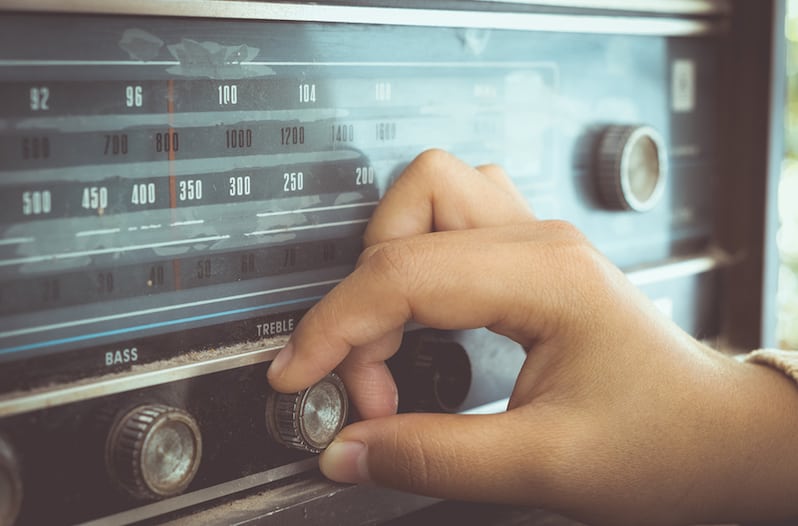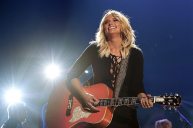Hey folks, you probably know me as the Managing Editor here at Wide Open Country and/or that girl who's always raging on Twitter about the lack of women on country radio. Over the last year or so, the dialogue around the lack of diversity on the country music airwaves has grown. But as more women speak out, so do the critics. I'd like to take a moment to address some of the most popular responses to those concerned about women getting the exposure they deserve.
Videos by Wide Open Country
"Women just aren't making good music."
There's a lot to unpack here. First of all, how do you define "good music"? Many people could argue that some of the songs that have spent the longest on the country charts in recent months are not entirely "good." (I'm looking at you, "Meant to Be.") To me, a good song means intelligent and relatable lyrics, solid vocals and a little dash of unexplainable magic that makes it stand out. The details or pieces of a song that connect with a listener always vary. So why can anyone say that art, which differs in assumed quality by artist and the listener, is automatically a certain level because of the artist's gender?
Also, it's important to note that women have created some of the most critically-acclaimed country albums of the past few years. Kacey Musgraves' Golden Hour, Ashley Monroe's Sparrow, Lori McKenna's The Tree, Miranda Lambert's The Weight of These Wings, Ashley McBryde's Girl Going Nowhere... should I continue?
"Female artists aren't as marketable."
If you see this example, it's usually tied to two different theories. One is the idea that men don't want to listen to "emotional" songs. The other is that women would rather listen to hot, sexy jams from hot, sexy dudes than anything else. And while I can appreciate a good looking guy singing a good song, here's a shocker -- women care about more than that! Sometimes we actually want to hear something from our point of view. More on that below.
Let's go back to the idea of guys not wanting to hear "emotional" or "sappy" songs sung by women. This is more of a personal masculinity issue than anything else. Women have a right to voice their emotions and opinions. And guess what? A lot of us want to hear it. There's a reason why you see so many women at shows, shouting out the lyrics to Miranda Lambert or Carrie Underwood. We've all wanted to key someone's car, drink too much or cry over losing a loved one. Tapping into those emotions have supplied some of the best country songs of all time.
The idea of a female artist not being "marketable" leads us back to the vicious circle of the industry that landed us in this pickle. Step one: Country radio leans heavier and heavier on male artists. Step two: Record labels see that males "do better" on radio than women and choose not to put big marketing budgets on female artists. (Note: there is still no scientific data or studies available that prove women don't actually want to hear women on the radio.)
Until record labels and radio programmers start making changes, country radio will continue to be dominated by male voices.
"Women don't want to listen to other women."
This is truly one of the laziest arguments out there. Y'all ever heard of Kitty Wells? Tammy Wynette? Do you really think all guys that were lining up to buy records of Loretta Lynn's "The Pill"? Was Shania Twain's "Man! I Feel Like a Woman" actually an anthem for men? Yeah, no. More than ever, women are starving for songs they can relate to. Millennials grew up at a time when artists like Shania, Faith Hill, Trisha Yearwood and the Dixie Chicks were all over the charts.
On social media, you can find a slew of country fans who say they feel connected to songs like Cam's "Diane" or Kacey Musgraves' "Space Cowboy" because they are real and relatable. They don't talk about women as an accessory or a piece of meat. Obviously, there are plenty of male artists who sing about women respectfully and poetically, but truly no one can understand the female experience like another female.
"Women aren't working hard enough to succeed."
Aside from this being a completely offensive assumption, it's also completely ignorant. As a woman working within the music industry, I've encountered more than my share of harassment, belittlement and disrespect. While women fight through the same system that men do for success as an artist, they also battle additional set of issues. Does she have the right look? Is she young enough? Is she sexy enough? Is she too sexy? There's an entirely different set of unrealistic expectations that women face that have literally nothing to do with their ability to write or perform great music.
Before you say, "Hey Lorie! It's 2018! Sexism isn't that bad anymore," go read Marissa Moss's article on Country Radio Seminar. Then please never say that sentence to me again.
"It should just be about the music, not their gender."
This sounds like a fair argument in theory, but we unfortunately still do not live in a world filled with constant sunshine, rainbows and equality. I would love nothing more than to not ever have to talk about these issues again, but simply arguing that gender isn't an issue won't help things. As long as the system is skewed against supporting women in the industry, people need to speak up and ask for change. If someone calls out the way you talk about a woman, listen. If someone asks why you called an artist a "songstress" instead of a singer-songwriter, listen. But most importantly, support the artists that you think are creating great art.




